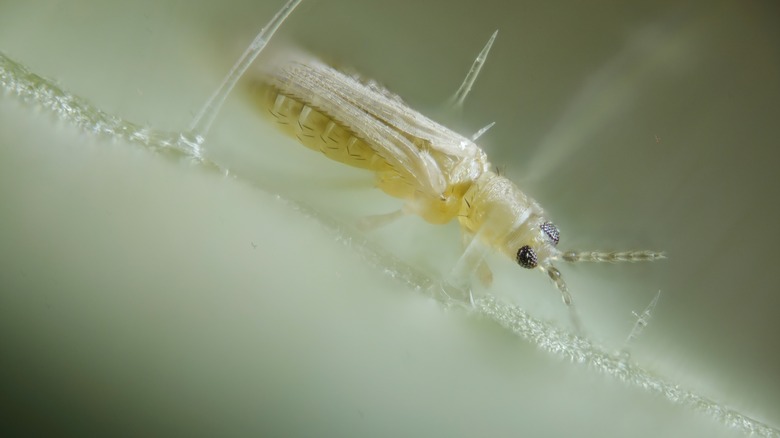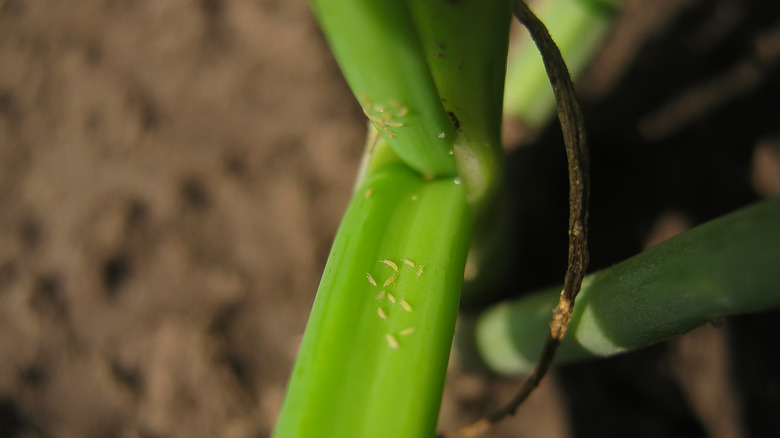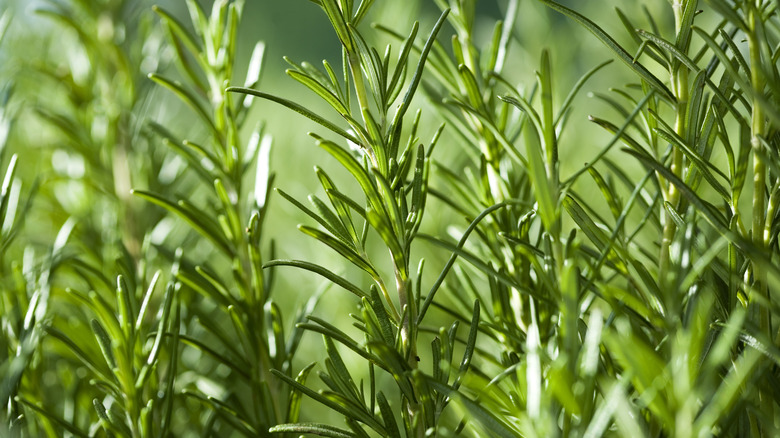Do Chives Really Work To Repel Thrips?
You might have heard through the grapevine (or the onion patch, if you will) that chives can keep thrips off your plants. Companion planting is a concept many gardeners swear by to keep their gardens as chemical-free as possible or bring other benefits to their gardens. The idea that chives can keep thrips away makes them highly recommended for companion planting since thrips can be a nuisance once they're established on your plants. But is this claim really true, or is it an old gardener's tale? Unfortunately, there doesn't seem to be any scientific evidence that chives deter thrips, and there's even a species of thrips that love alliums specifically, called onion thrips.
That said, chives do have some repelling power that shouldn't be overlooked. According to the University of Arizona, chives can repel aphids and Japanese beetles, two great reasons to plant chives around your garden. They are also known to keep deer away since they don't like heavy scents, but whether they do anything to control thrips is a debatable topic.
Chives have thrips of their own
Onion thrips love any plant in the onion family — including garlic and chives. Chives and other alliums can also attract western flower thrips. Chives can host either one, meaning that thrips will flock to them on their own. Thrips can invade nearby chive plants if they are planted next to a plant with thrips, making the problem more likely if you have chives planted throughout your garden.
If you listened to some well-meaning advice and now have thrip-infested chives throughout your garden, there are a few things you can do. One option is to attract insects that eat thrips to your garden, such as lacewings and pirate bugs. Alternatively, you can try to wash the thrips off with water. Thrips drink sap from leaves and cause them to change colors and fall off, leading to severe damage that can stunt the plant. Thrips' life cycles can last as little as two weeks, so an outbreak can happen quickly.
If chives don't work, try this instead
Chives are a useful herb in the kitchen, pretty when they bloom, and useful against aphids, so you'll likely want them in your garden whether they invite thrips or not. Since so many gardeners say they can repel thrips, it might be worth the experiment in your garden. But if your experiment goes south, you'll need some plants that can actually keep thrips away — and that's where rosemary comes in.
In a study in the Journal of Economic Entomology, researchers tested rosemary against a few different thrips species. They found many of the thrips were repelled by the scent released from broken rosemary leaves, and many of the females wouldn't settle near the plant to lay their eggs. This study suggests that if you plant rosemary throughout your garden, thrips may stay away and won't populate the area because of the scent. However, you may need to periodically tear the leaves of the plant for it to be effective.


